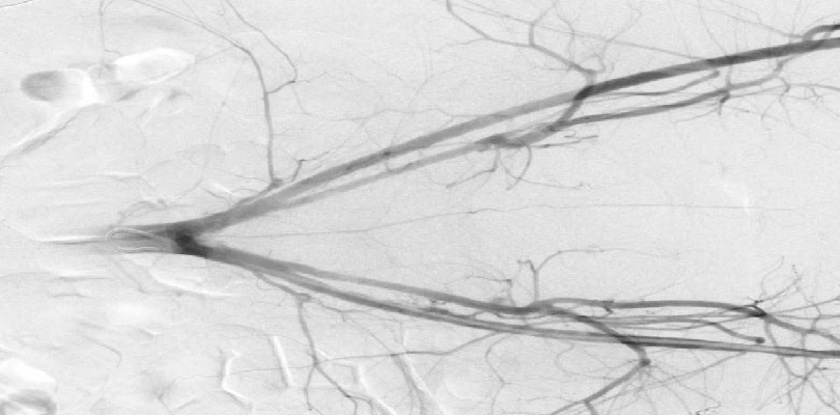Please be advised
PREGNANCY: Please notify the Radiologist if you are pregnant, or think you may be pregnant. Alternatives can be discussed with your doctor.
ALLERGIES: Notify the Radiologist, Nurse, or Technologist if you are allergic or sensitive to medication, contrast dye, iodine, or latex.
Interventional Radiology Safety
What is Interventional Radiology?
Interventional Radiology uses continuous X-rays (fluoroscopy) to image certain areas of the body, and perform minimally-invasive procedures to diagnose and treat disease. These procedures have fewer risks and a much shorter recovery time than open surgery.
What is fluoroscopy?
Fluoroscopy is a tool which helps the Radiologist “see” inside the human body. The physician is able to examine a patient’s vascular system, anatomical structures, and organs with the aid of fluoroscopy.
What are the risks of fluoroscopy?
Talk to your physician about the risks of ionizing radiation. The amount of radiation used during a procedure can vary due to a many factors such as patient size and procedure duration. The Radiologist will make every effort to utilize the lowest amount of radiation necessary to safely complete the procedure.
If there is any possibility you may be pregnant, please notify your physician. Exposure to ionizing radiation during pregnancy may lead to birth defects.
There is a risk for patients who are allergic to contrast dye. Please notify your doctor if you have a history of allergic reaction to contrast, iodine, latex, or medication. Patients with kidney problems should also notify their physician.
There may be other risks depending on your specific medical condition. Feel free to ask questions and discuss any concerns with the Radiologist prior to the procedure. Your physician can explain how the clinical benefits of fluoroscopy outweigh the risks of radiation exposure during the medical procedure.
How do I prepare for my procedure?
PRECAUTIONS: Please notify the Radiologist if you are pregnant, or think you may be pregnant. Alternatives can be discussed with your doctor.
CLOTHING: Patients will be provided with a patient gown and shorts. You will be asked to remove all jewelry, and personal belongings will be stored in a bag for safe keeping.
EAT/DRINK: Instructions will be provided based on your examination.
ALLERGIES: Notify the Radiologist, Nurse, or Technologist if you are allergic or sensitive to medication, contrast dye, iodine, or latex.
Patients are required to change into hospital gowns
![]()

